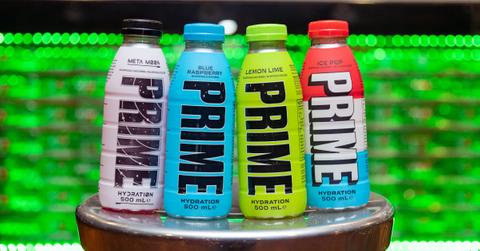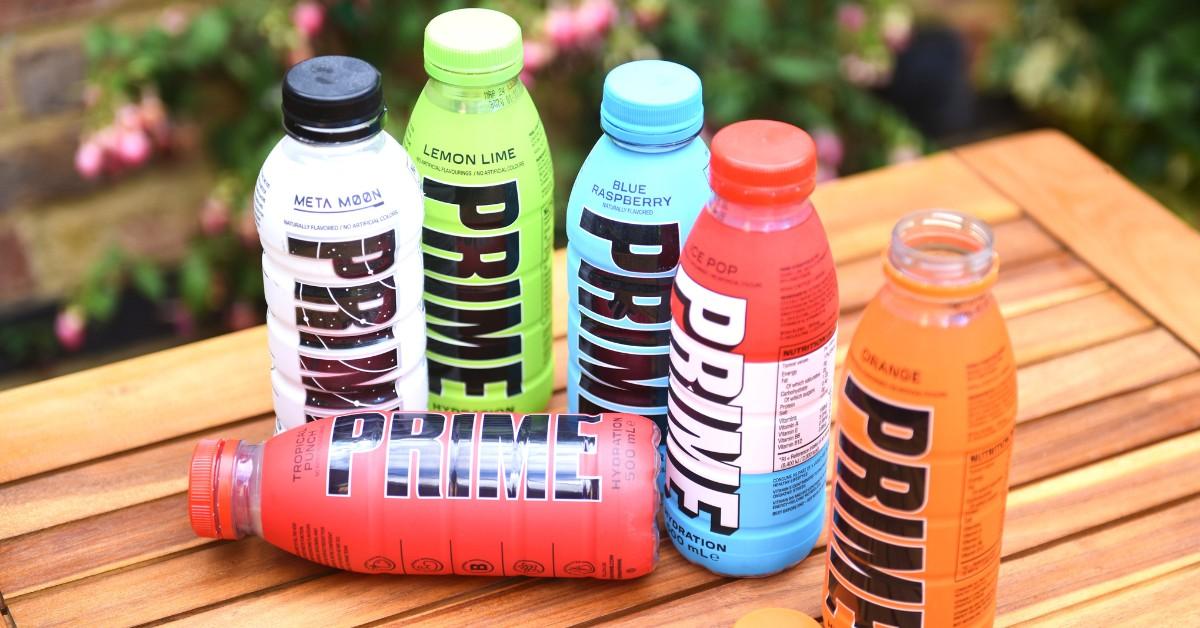PRIME Hydration Faces a 5 Million Dollar Lawsuit Over PFAS Claims — Details Here
PRIME Hydration LLC is currently facing multiple lawsuits over "misleading and deceptive practices" when it comes to the ingredients used in their popular drinks.
Updated Oct. 23 2024, 3:38 p.m. ET

Logan Paul and KSI (whose legal name is Olajide Olayinka Williams Olatunji) are in hot water after the company they founded was named in multiple class action lawsuits over the contents of their uber-popular PRIME drinks. PRIME Hydration LLC's legal woes started in 2023 when one of their popular drinks tested positive for PFAS, or the per- and poly-fluoroalkyl substances known as "forever chemicals" due to their long shelf life.
The effects of these chemicals are extremely concerning. Even the government is worried about them, making removing PFAS from the nation's drinking water a top priority for the Biden-Harris Administration, which urged the Environmental Protection Agency (EPA) to set a first-of-its-kind standard in 2024 — which makes this suit of particular interest for anyone who drinks PRIME.
Continue reading to learn more about PRIME and the ingredients that get them into trouble.

A lawsuit alleges PRIME Hydration drinks contain PFAS.
PRIME became wildly popular after its 2022 introduction into the mainstream. While people have loved drinking a variety of products produced by the brand — which include drink mixes, sports drinks, and energy drinks — the company quickly found itself in the crosshairs of an investigation by the Food and Drug Administration (FDA) in July 2023, when Senator Charles Schumer became concerned with the amount of caffeine included in the beverages that had been heavily marketed towards kids.
A motion hearing held on April 18, 2024, led to the public release of court documents from the August 2, 2023, lawsuit that outlined the results of third-party testing, which found the presence of PFAS in the grape flavor of PRIME Hydration.
This information hadn't been revealed to the public despite the company's extensive and aggressive marketing, which often celebrates the product for having healthy ingredients.
In fact, the documents state that testing determined that the product had nearly three times the lifetime limit of the chemical PFOS (Perfluorooctane sulfonic acid), an ingredient often used in non-stick or stain-resistant products.
PRIME Hydration must convince a jury that the company isn't guilty of violating the five laws it stands accused of breaking. This is, of course, when they're not fighting a separate class action lawsuit filed on April 8, 2024, about the caffeine levels in the company's 12-ounce energy drinks.
What are PFAS in PRIME?
PFAS, or per- and poly-fluoroalkyl substances, are also known as "forever chemicals." As previously mentioned, they are man made, have an extremely long shelf life, and have been the subject of many product lawsuits, including Native shampoo and Carefree pantyliners.
While PFAS were initially invented to aid in the manufacturing of consumer products, per Live Science, scientists quickly discovered that exposure to PFAS chemicals can lead to horrific health issues, including kidney and testicular cancer, changes in liver enzymes, increase in cholesterol levels, and more, per the U.S. Agency for Toxic Substances and Disease Registry (ATSDR).
Is PRIME Hydration bad for you?
As you can imagine, all of this legal back-and-forth raises questions about whether or not anyone should consume the popular drink, let alone the kids and teens it seems most heavily marketed to.
To determine whether or not the drink is bad for you, you have to look to the third-party findings about the levels of PFAS found in the grape drink — known to cause everything from obesity to issues with the immune system — to make your decision.
If the forever chemicals don't bother you, or you want to reach for a flavor other than grape to be on the safe side, you'll want to take into consideration some of the other ingredients found in the beverages manufactured by the brand, including artificial sweeteners and artificial vitamins, both of which can be concerning when consumed in high levels.
Ultimately, it may be worth passing on the PRIME in favor of something with fewer ingredients.
This article, originally published on April 24, 2024, has been updated.